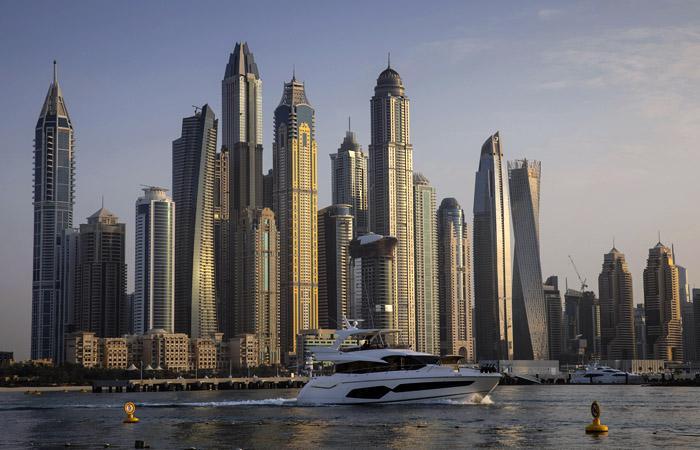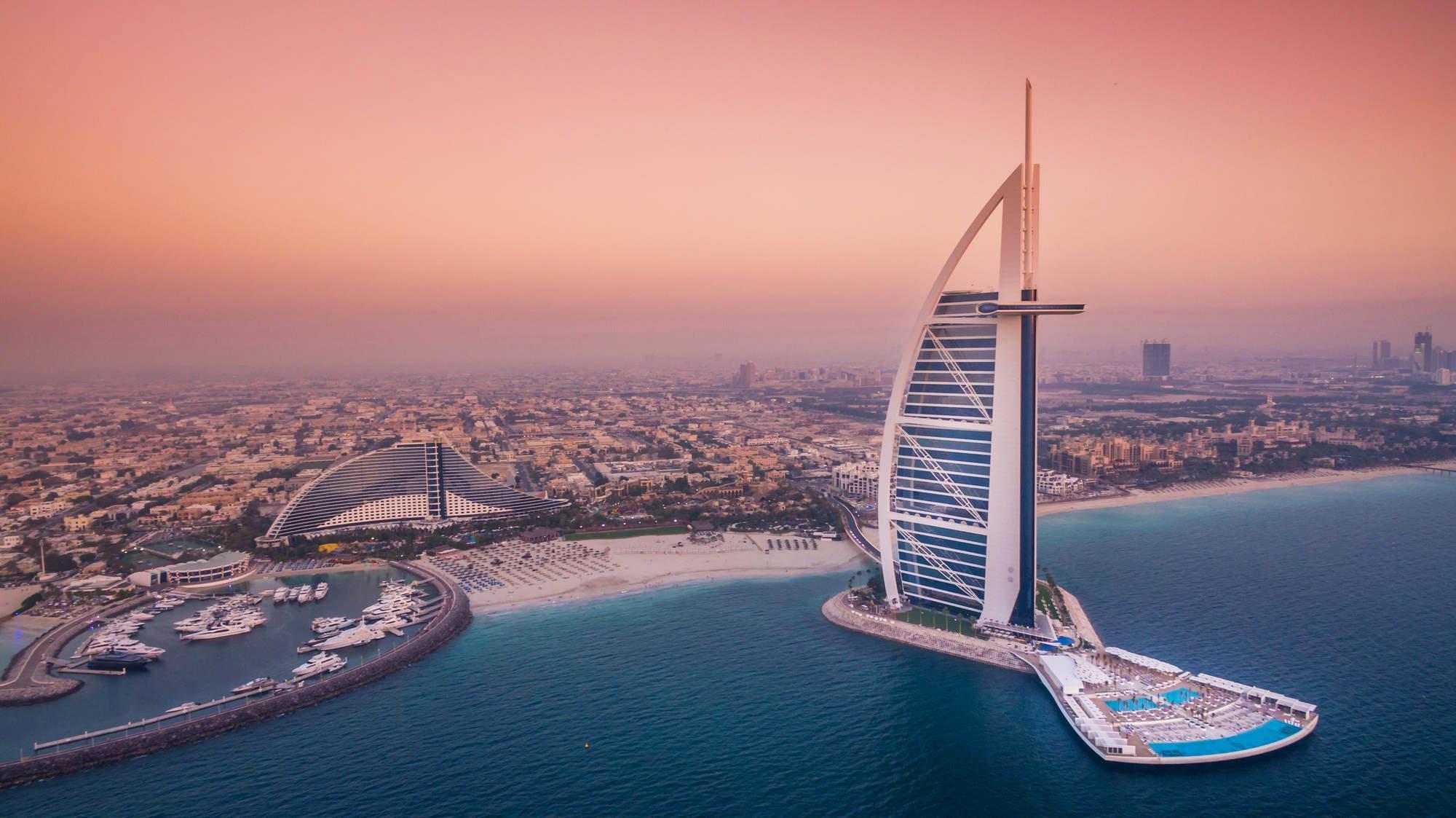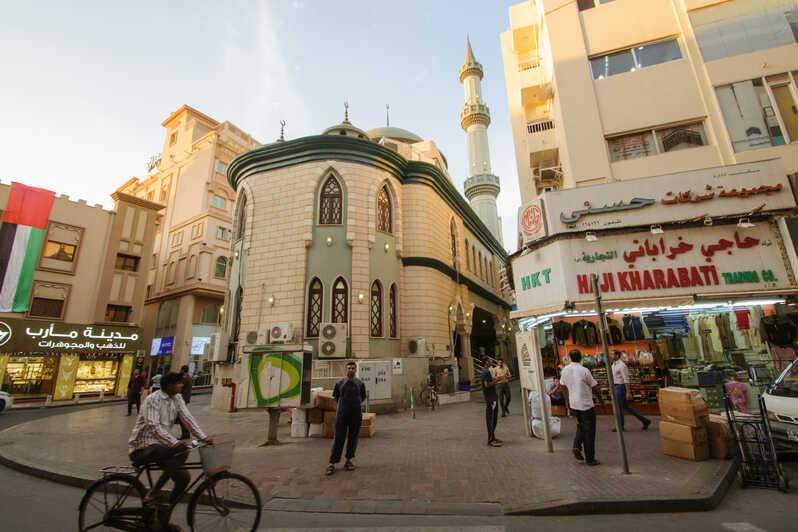Dubai turns into "Moscow on the Gulf" Caliber.Az interview with Maxim Shashenkov
"Russians have rushed into the Persian Gulf countries and especially to the Emirate of Dubai in search of a new international hub and financial platform in the era of Western sanctions and a new Cold War."
Maxim Shashenkov, Doctor of Sciences in International Relations and Strategic Studies, a Russian Arabist and historian-orientalist, made the due remark in a conversation with Caliber.Az while commenting on the prospects of Russian business under sanctions pressure.
Shashenkov noted that under Western restrictions, the Persian Gulf countries have become an alternative for Russian business and have unexpectedly become one of the most important regions for the development of various kinds of Russian businesses.
"Against this background, the Arabic language and Arabic studies, in general, have suddenly started to play out in fresh colours and perspectives. Amid anti-Russian sanctions, interest in the Emirates has increased significantly. In just two months, Russian citizens "captured" the UAE, especially Dubai. You can meet Russians of all types and social groups. Apart from respectable businessmen, there are young IT and real estate professionals, representatives of the service industries, as well as opportunists in search of fast money. However, there are also ordinary people in Dubai who are fleeing from the realities of war. By the way, apart from Russian citizens, there is a similar influx of Ukrainians and Kazakhs in the UAE, many of whom are losing ground in their homeland. "Another reason for the fact that Dubai has quickly become 'Russified' is the significant growth of Russian tourism, which has lost many destinations and which loves the Emirates," the expert added.

Shashenkov believes that the collective West looks at Russia with apprehension, mainly due to geopolitical, macroeconomic and "value" considerations.
"In the East, the approach to Russia is much less politicized, and, as a result, new opportunities appear here. The East is a "delicate matter", but everything in the world, and especially here, is changing so rapidly that Eastern nuances have suddenly begun to play out with fresh colours and opportunities. In the local media, you can often find estimates and forecasts of experts, who argue that the number of Russian-speaking residents of the UAE this year will grow almost 2 or 3 times. The Russian factor is rapidly increasing real estate prices. Moreover, the Russian-speaking representatives of the post-Soviet space flooded the local regulator and relevant departments with applications for opening companies, accounts and obtaining residency. Dubai has long been a kind of "new Babylon". All languages and people are mixed here. In Dubai itself, about a third of the population is Arab, including Emiratis, another third are Asians (primarily Pakistanis and Indians), and about a quarter of the population are Westerners and Russian speakers, these are mostly European ex-pats and natives of the former Soviet Union. The "Russian" segment of the UAE has increased dramatically. Significant growth is observed in the composition of the population of the Emirates, in tourism and in the real estate market. Everything points to the fact that against the backdrop of sanctions and various restrictions, "Moscow on the Gulf" is noticeably activated and will grow. In a relatively short period of time, the UAE infrastructure will begin to catch up with the growing number of Russians in the Emirates, as a result of which a lot of new things will appear," our interviewee said.
As for Russian business directly in the East, Shashenkov emphasized that many newly arrived Russian businessmen somewhat overestimate the opportunities in Dubai, especially in the field of banking services, and at the same time greatly underestimate the opportunities in the region as a whole.
"The bulk of Russian-speaking business people generally have a superficial understanding of how local banks, companies, the regulator and other mechanisms work. Many, to put it bluntly, came to the Emirates looking for an alternative to the City, Wall Street and Zurich, with rather rosy and naive expectations. Nevertheless, Dubai has always been a place of special concentration of crooks, swindlers and "air sellers" of all types. The serious structures of the Emirates would turn them out of their offices, but there are plenty of them in Dubai on the medium and low levels. The cosmopolitan roots of Dubai are very deep: for centuries, merchants and traders of Iran, India, the Ottoman Empire and Europeans, especially the Portuguese and the British, have mixed here. Dubai is the great eastern bazaar of the Persian Gulf, which, thanks to energy resources and the wisdom of its rulers, has managed to rise and re-equip itself technologically, while still retaining elements of the old eastern bazaar," said the historian.
According to Shashenkov, it is very important in the Emirates to choose the right partners and intermediaries, otherwise, you can lose both time and money.
“I often see and hear how many of our compatriots are in search of arranging money and business in the Gulf. Of course, many of them will soon be disappointed and tormented. But there is a need to relax. A lot is possible in the Emirates, but according to the rules of the indigenous population and slowly. The key to understanding the Arabian East lies in a few rather profound phrases: "God willing" and "Relax." It is better for businessmen who are accustomed to Western business culture, the City and Swiss banks, to immediately relax and adopt local practices. You better mind your own business.
At the same time, the obvious advantages include the high level of education in the Emirates. Many Arabs are graduates of prestigious universities in Europe and the United States, they have a sincere desire to develop their country and make it attractive to the outside world. Among other things, there are a lot of English-speaking expatriates in managerial positions in business and services. In general, the business culture in the UAE is quite international. People who are accustomed to working with Europe can handle it easily.
The requirements are not particularly different from Western ones, it is not easy to create a business quickly, although it is possible if there is an influential local Emirati partner, nothing will happen quickly for most businesses,” the expert said.

He further noted that the West is monitoring all processes in the UAE.
“It is possible and necessary to build a business with Russians, but with the correct passage of all control systems. The US does not sleep here and monitors all processes well. Meanwhile, it is impossible to force an Arab to refuse to participate in Russian business, the US and the EU will not even try, but they will strictly comply with the sanctions and, under the fear of secondary sanctions, they will gradually force everyone. In the long term, if Russian business manages to "saddle" the Persian Gulf, and even in tandem with China, then the United States may begin to put severe pressure on the leadership of a number of Gulf countries. But this scenario is more realistic in the context of the aggravation of the Cold War and its long continuation. This is still hardly possible to accurately predict. In any case, the organic growth of the business will be slow. Procedures take a long time.
First, you need to become a resident, then it takes months to open accounts, and the regulator and the relevant departments are overwhelmed with Russian applications to the point that there is not enough staff to process the documents. In general, it will take approximately 6-12 months to completely transfer / create a medium or large company/business in the UAE, including all permits, licenses and accounts," he said.
Shashenkov also stressed that there is a big difference in approaches to the Russian question in Europe and in the Gulf.
“This difference is simply striking against the backdrop of the tragedy in Ukraine. There has never been everyday Russophobia in London. Not even now, amid the unfolding confrontation. However, it is worth noting that certain alertness on the Russian issue is still noticeable. This is politically correct, but invariably present in communication. In many large companies and banks with a large concentration of Russian-speaking employees, human resources (HR) departments issue warnings about the inadmissibility of discrimination and the undesirability of heated arguments about the war in Ukraine in the workplace. But this topic is still relevant in private conversations.
At the same time, it is quite obvious that in Britain and in Europe as a whole there is a serious reassessment of the “Russian risk” in various spheres and areas - in politics, in relation to Russian money and assets, in the issue of openness to Russian influence. The Russian presence is becoming the target of closer attention of the authorities because some of its elements are recognized as toxic. There is a consensus at the top that we have entered a new and sharper stage of the Cold War with elements of a new type of "curtain". And today, the threat of a real war between the West and Russia is so high more than ever since the end of 1940-60. In the military conflict between Russia and Ukraine, the Europeans, for the most part, are in full solidarity with the Ukrainians as the injured party. Against this background, the Persian Gulf is another world. An interest in the conflict between Russia and Ukraine is surprisingly low here. Al-Jazeera and local channels constantly tell and report something, but for the majority of the Arab public, this is not so interesting and not very important.
Undoubtedly, this is a positive factor that creates a more favourable background for the development of business for Russian speakers in the Persian Gulf region. I think all this can be remotely compared with the understanding and interest of the Russian or European society in the war between Saudi Arabia and their allies in Yemen against the Houthis. The vast majority of Russians, and even business representatives, in general, who have heard about this conflict on the Arabian Peninsula, do not understand the details and know very little. They do not care. The average resident of the Emirates or Saudi Arabia, of course, heard and hears about the war in Ukraine, but for him, it is something irrelevant to his life, region and his world.

Moreover, at a lower level (taxi drivers, waiters, hairdressers, most of whom come from South Asia or non-Gulf Arab countries) one can often find strong support from Russia and Vladimir Putin. Many of them see the conflict as more of a clash between Russia and the West than with Ukraine. This is the standard worldview of the "Arab street".
In general, it can be said that at the level of ordinary people, the attitude towards Russia and Russians is directly related to the dynamics of relations with the United States and the West, and more precisely, with the anti-colonial revolution. This is not so much Russophilia, as it is anti-Westernism and anti-Americanism.
They see Russia as a force capable of at least somehow resisting the United States and the West. The latter still cannot be forgiven for centuries of colonialism, and the United States is often seen as a neo-colonial power. In fact, the roots of anti-Americanism lie in the hatred of European colonialism and the Crusades. At times it even seems that an anti-colonial revolution has not ended at all, and the plebs of the East still retain their passionate response. And for them, the Russians are against the West. It could sound very naive, but this is the reality of this part of the East. In elite circles, the situation is somewhat different, but the main thought is the same - this conflict between Russia and the West is not a reason to break off relations with Russia, quite the contrary. But it is a reason to use the whole situation to your advantage and to defend new relationships with the Russians,” concluded Shashenkov.








